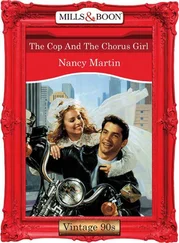“I know what you meant, Captain,” she said, but without any resentment in her voice. “One of the reasons Dad ratted on his friends and customers and told you the scuttlebutt that he heard was so you’d look the other way on his little schemes and scams. I loved my father, warts and all. And he certainly had plenty of warts.”
Monk cringed. “And you let him stand in your kitchen where your family’s food is prepared? Where your guests are eating and drinking now? You’re going to have to gut that kitchen down to the studs.”
Carol stared coldly at Monk. “Excuse me, I should probably see how the other guests are doing.”
She gave Stottlemeyer a kiss on the cheek, cast one more cold glance at Monk, and moved on.
“You’re a sensitive guy, Monk,” Stottlemeyer said.
“That’s why I didn’t tell her that she and her family and everyone here who has consumed anything served from that wart-infested hellhole will need to be decontaminated by a haz-mat team,” Monk said. “I’ll call her tomorrow, when it won’t be as traumatic. Someone should also call the health department about that Jamba Juice. People have probably been tracking warty Bill Peschel in and out of the place all day.”
Nick broke away from Braddock to talk with Carol, and Braddock sauntered over to us.
“Oh joy,” Stottlemeyer said as he saw Braddock approaching.
“Maybe he’s just coming over to share his condolences,” I said.
“I’m sure he is,” Stottlemeyer said. “For my career.”
“Hey, Monk, I’m surprised to see you here,” Braddock said. “I didn’t know you knew old Billy-boy back in the day.”
“I didn’t,” Monk said. “I met him for the first time a few days ago. He was the captain’s friend.”
Braddock nodded. “That makes sense. You don’t need snitches, do you, Monk? You can close a case without help, unlike Leland here. He needs all the help he can get.”
“You’re right, Paul, I do. I solicit the unique skills and special relationships of the people around me to get the job done.”
“To make up for your own weaknesses,” Braddock said. “It’s sad.”
“I guess that’s why I’m a Homicide captain in the big city of San Francisco and you’re giving parking tickets in the tiny little desert town of Banning.”
Braddock’s face turned bright red. His rage must have been pretty close to the surface to start with.
“The way I hear it, you aren’t going to have that job much longer.”
“Maybe so,” Stottlemeyer said. “But it’s still a job that you’ll never get.”
“The only difference between you and me is him,” Braddock said, jabbing a finger in Monk’s direction. “Without your little Rainman, you’re nothing.”
“Which still is more of a cop than you’ll ever be. I make my cases using evidence, not beatings,” Stottlemeyer said, watching as Braddock’s hand clenched into a fist, crushing the empty can he was holding. “Trying to wring a confession out of that beer can?”
Braddock swung his fist at Stottlemeyer, who deftly dodged it with his left arm, splashing the people nearby with Diet Coke, and punched him in the nose with his right.
The detective staggered back, bumping into two mourners and causing an immediate stir in the room. Everyone was watching now. Nick seemed embarrassed but Carol was mortified.
Furious and bloodied, Braddock swung again, but Stottlemeyer easily ducked under it and punched the detective hard in the stomach, doubling him over.
Stottlemeyer followed up with a right uppercut to the chin that sent Braddock staggering backwards out the open French doors to the backyard, where he lost his footing and slid on his butt across the wet grass as if it were a Slip ’n Slide.
The captain was going out for more but Slade grabbed him from behind and held him back.
“Leland,” Nick said. “That’s enough. You’re at a wake, for God’s sake.”
That seemed to snap Stottlemeyer out of it. Phil Atwater and a couple of other men helped Braddock to his feet.
Braddock was a dazed mess. There was blood spatter on his white shirt from his smashed nose and the back of his pants were all wet and grass-stained.
I looked over at Monk, who stepped past Stottlemeyer and Slade onto the patio. He had his head cocked at an angle, observing the situation as if he’d never seen anything like it.
“Haven’t you ever seen someone get punched before?” I asked as I joined him. “If Stottlemeyer hadn’t socked him, I might have.”
“There are grass stains on his pants,” Monk said.
“That’s what happens when you slide on wet grass.”
“Or walk on it with your socks,” Monk said. “The lawn is so green and lush because it’s watered every day at the same time. It was wet yesterday, too, but Bill Peschel’s socks weren’t stained. They were bright white.”
He was right. I remembered seeing Peschel’s sock-covered feet just before they zipped up his body bag.
“Maybe the chlorinated water leached out the stains,” Nick said.
Spoken like a man who had never done a load of children’s laundry. But Carol had and, judging by the horrified expression creeping onto her face, the implication of Monk’s observation was beginning to sink in.
It certainly had for me and Stottlemeyer. We both had kids. Grass stains don’t wash out easily, if they ever wash out at all. So the fact that Bill’s socks weren’t stained could mean only one thing: He didn’t walk across the grass.
The captain shrugged his arms free from Slade’s loosened grasp and stepped forward.
Monk picked up a white plastic chair, set it on the grass near the fence, and waved me over.
“Stand on this,” he said.
“Why don’t you?”
“I’m afraid of heights.”
I sighed, grabbed the top of the fence for support, and stepped onto the chair. It wobbled and sank under my weight into the sodden lawn with a moist, squishy sound.
“You don’t weigh half as much as Bill Peschel did,” Monk said. “But the chair he stood on wasn’t sunk into the lawn. It was right on top.”
“Maybe the chair was moved by one of the coroners, cops, or the police photographer,” Stottlemeyer said.
“Then there should be four holes made by the chair in the grass somewhere along the pool fence.”
Monk bent over and walked slowly around the entire perimeter of the pool.
He walked very, very, very slowly.
So slowly that I’m pretty sure he was counting the blades of grass as he went.
Everyone was silent, watching Monk. Even Braddock was transfixed, holding a towel to his bloody nose.
After what felt like hours of frustration and suspense, Monk returned to me, tipped his head from side to side, rolled his shoulders, and then addressed the crowd.
“Bill Peschel didn’t step on a chair, climb over the fence, and jump into the pool,” Monk said. “He was murdered.”
Mr. Monk Asks Around
Before long the guests were gone and the crowd at Carol Atwater’s house was made up of cops and crime scene investigators from the Mill Valley Police Department. Even Carol and her family had left, preferring to spend the night in a hotel. I wondered if they’d ever come back to this house now.
Stottlemeyer and Slade stuck around-the captain to protect Carol’s interests and Slade to publicize his own.
Slade was careful to remind Monk that he worked for Intertect and that any further observations he wanted to share had to go through him first.
“I don’t know what forensic evidence they hope to find,” Slade said, watching the forensic technicians doing their thing. “The scene has been hopelessly compromised and contaminated. The yard has been watered, which is bound to have washed away trace evidence, and everything has been trampled and touched by dozens of people since Peschel’s death.”
Читать дальше
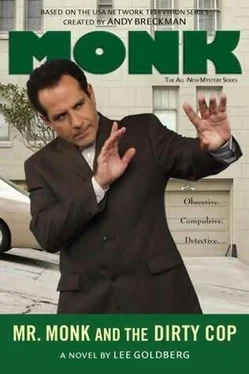


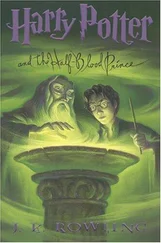
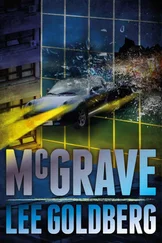
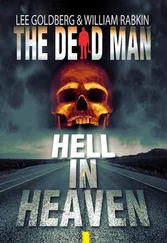

![О Генри - Фараон и хорал [The Cop and the Anthem]](/books/415669/o-genri-faraon-i-horal-the-cop-and-the-anthem-thumb.webp)




